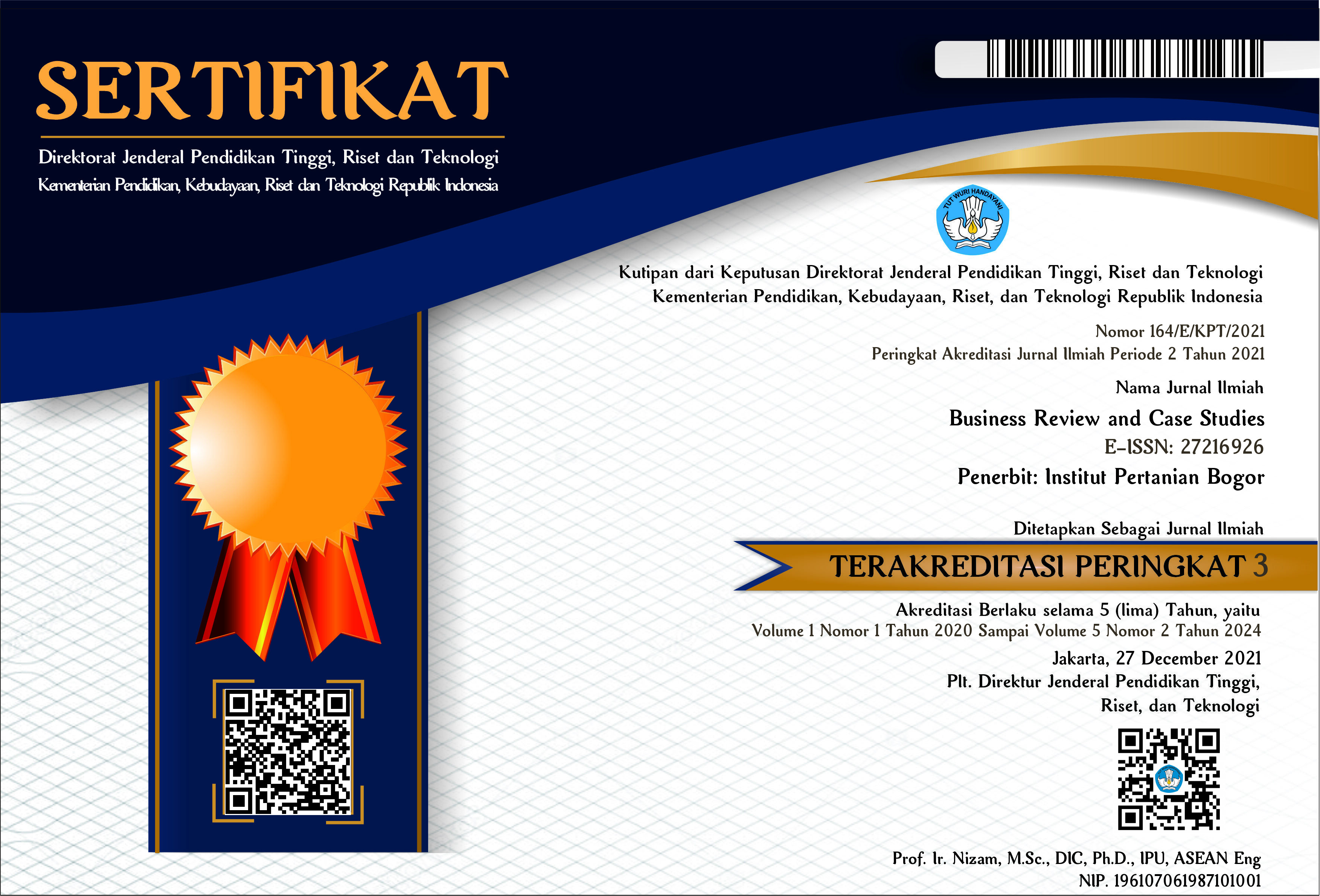Literature Analysis of Warehouse Financing in Indonesia: Mapping The Barriers and Solutions For Development
Abstract
Background: Over the last five years, transactions and warehouse receipt utilization have shown a significant decline. In 2023, there was a recorded growth of -30% in warehouse receipt financing, while the growth in warehouse receipt issuance was -25.15%. This condition indicates that Indonesia's warehouse receipt system management is not optimal.
Purpose: This study aimed to provide an overview of Indonesia's warehouse receipt system (WRS) by analyzing issues that hindered its development and formulating solutions to tackle those issues.
Design/methodology/approach: This research employed a systematic literature review (SLR) approach. Scopus and Sinta indexed journals were used, from which we selected 33 of 378 previous studies. We divided the findings of this study into internal and external problems and solutions.
Finding/Result: The findings of this study were divided into internal and external problems and solutions. Internal issues included farmers not meeting the minimum deposit requirements, lack of awareness of the WRS, limited access to WRS, and competitive costs. Meanwhile, external problems included a distant warehouse location from the production site, inadequate facilities, poor management quality, limited availability of warehouses that met standards, and government support. Internal solutions included establishing a cooperative body, increasing production output through smart farming, providing access to financial capital, education, and socialization of WRS, and government subsidies to reduce operational costs. Meanwhile, external solutions consisted of building a warehouse near the production site, repairing facilities, training for warehouse management, coordinating with financial institutions, and accelerating policies on developing WRS in Indonesia.
Conclusion: The most frequently discussed problem was that farmers had to bear costs such as rental fees, transportation fees, processing fees, and insurance fees. To strengthen farmer groups, the government needed to provide farmers with bailout funds and capital assistance. Stakeholders could use the study's findings to formulate policy recommendations to aid in the development of WRS. We anticipated that WRS development would benefit Indonesia's economic development, particularly the agricultural sector.
Originality/value (State of the art): Based on the researcher's observations, no WRS analysis has been found using the SLR approach. This method was chosen because it is considered appropriate for reviewing literature that has been conducted in the context of WRS.
Keywords: literature review, agricultural economics, warehouse receipt system, problem, solution







.jpg)






